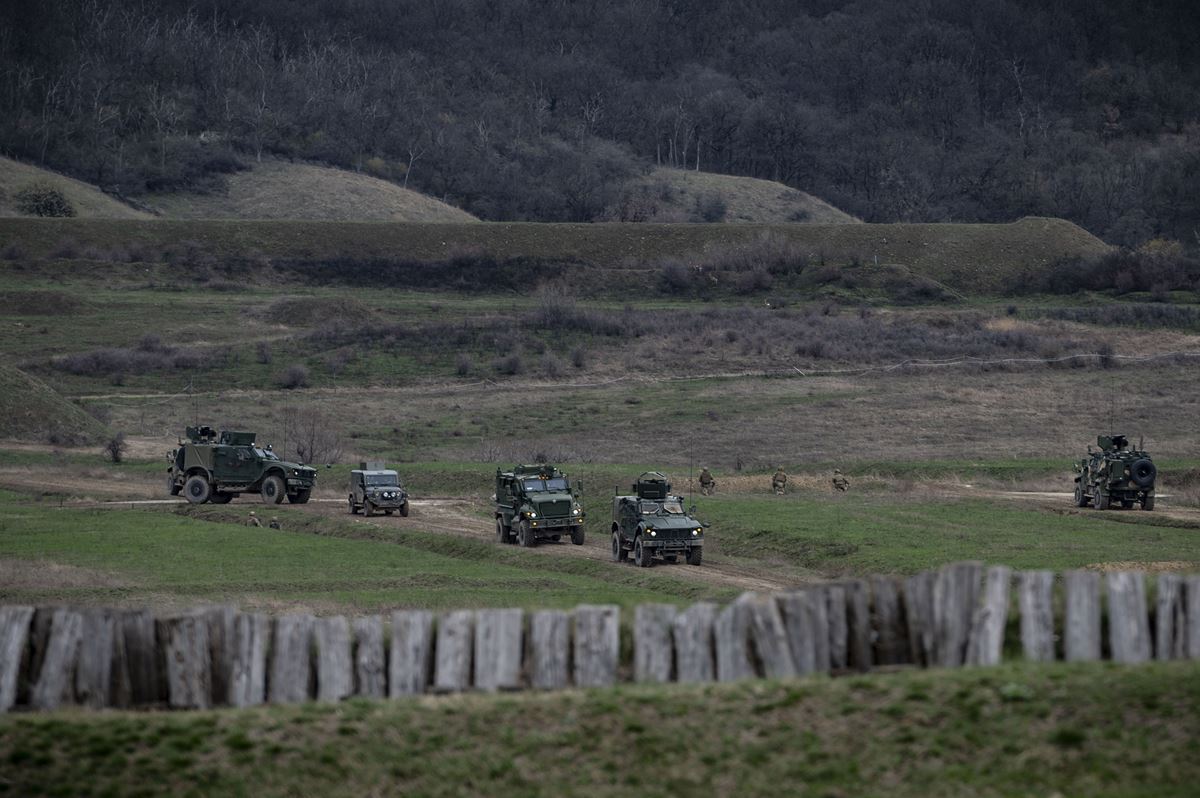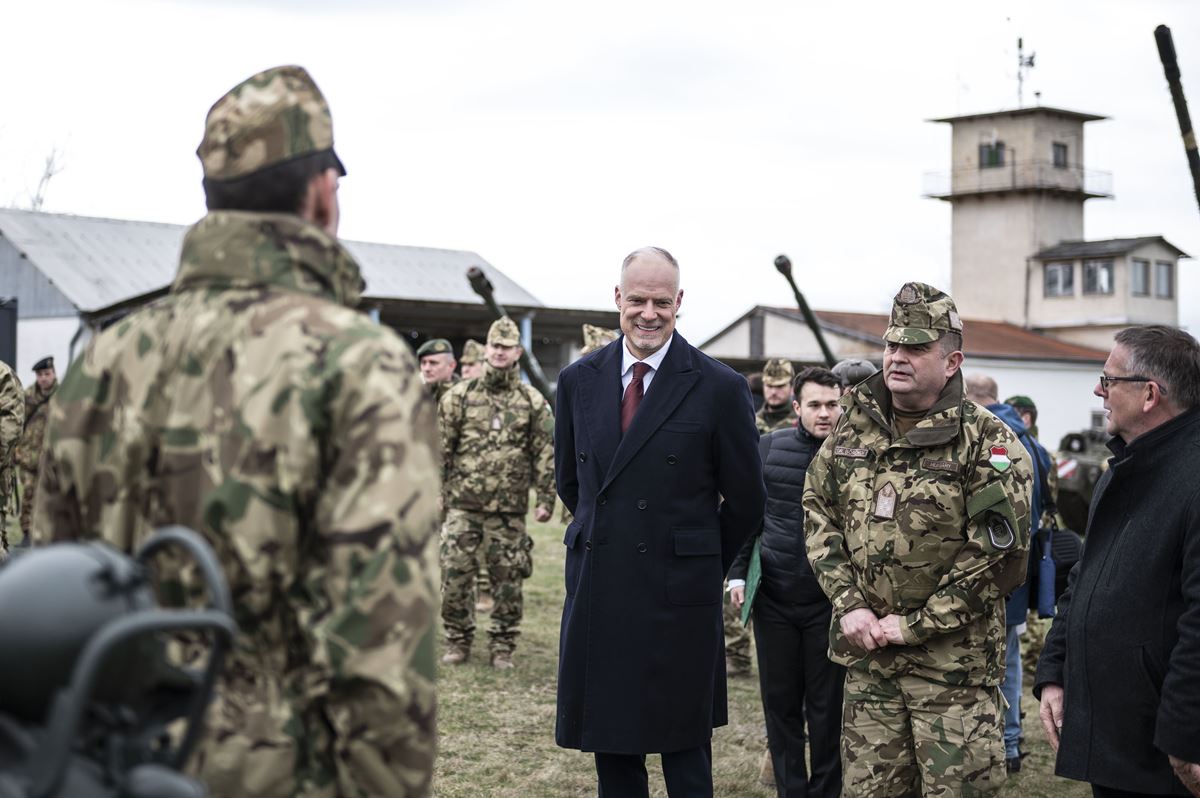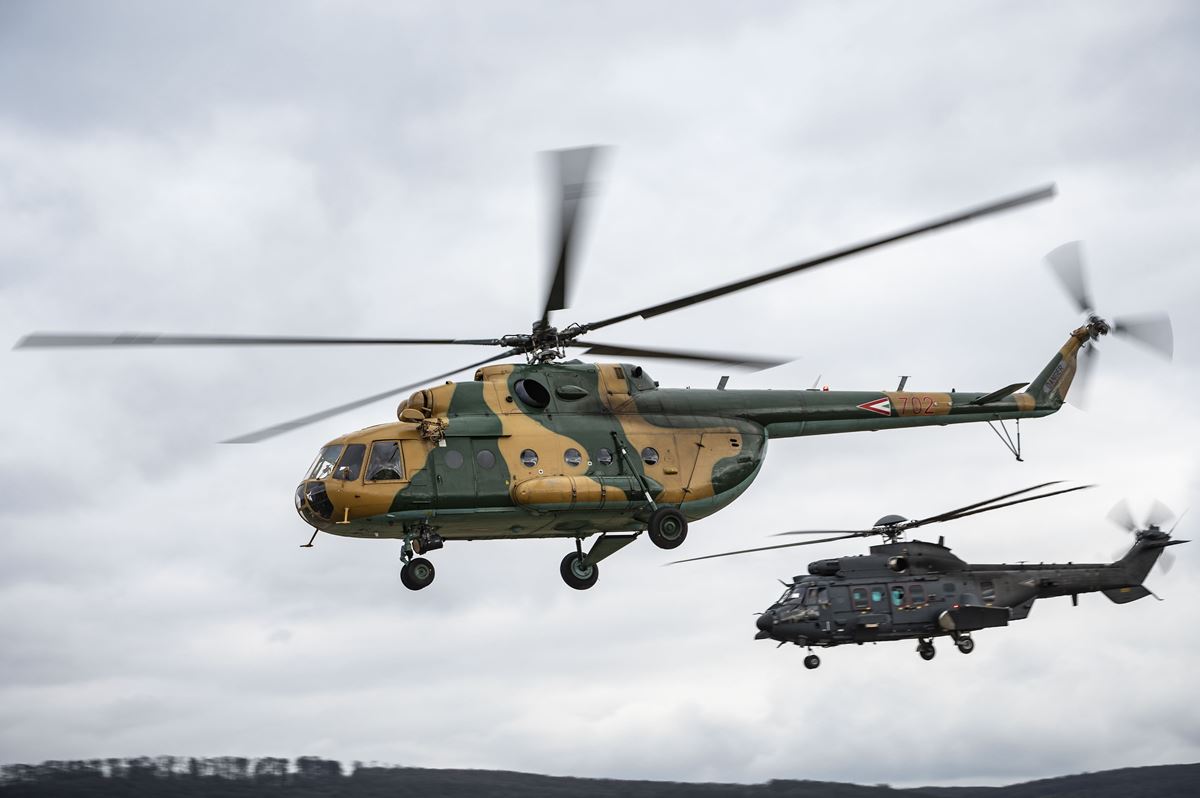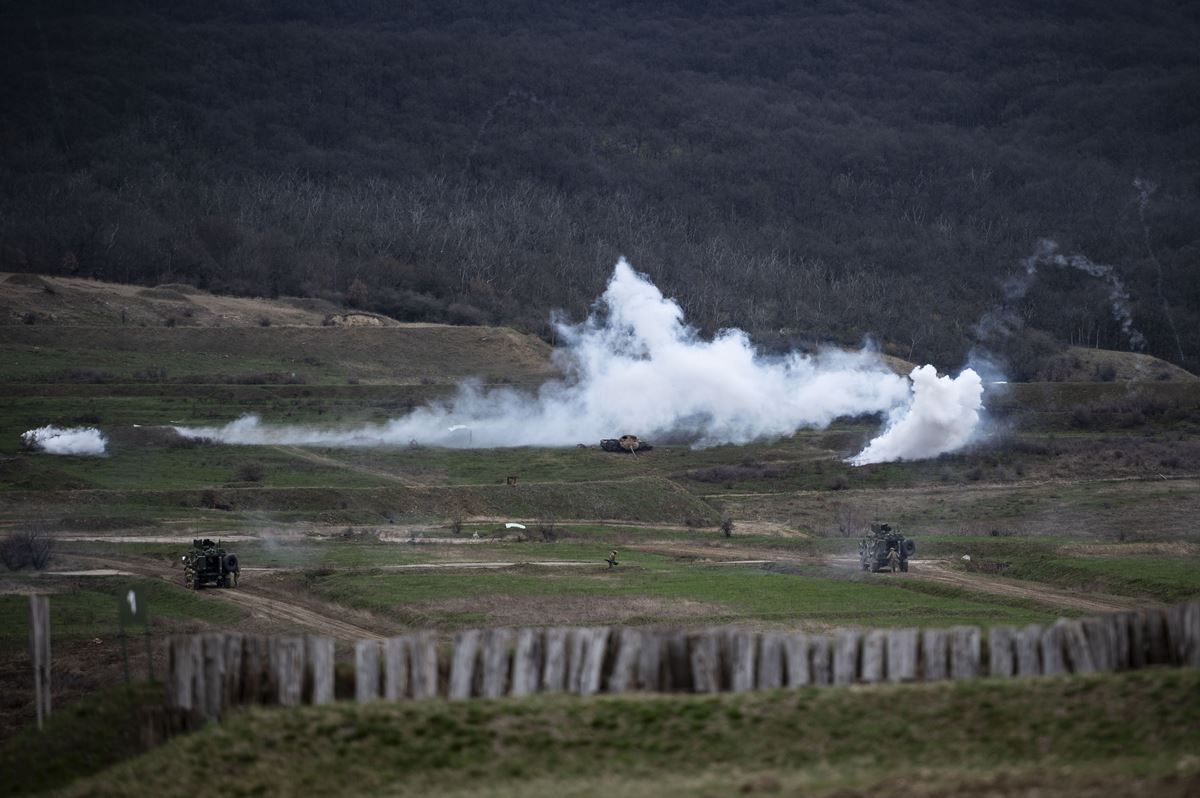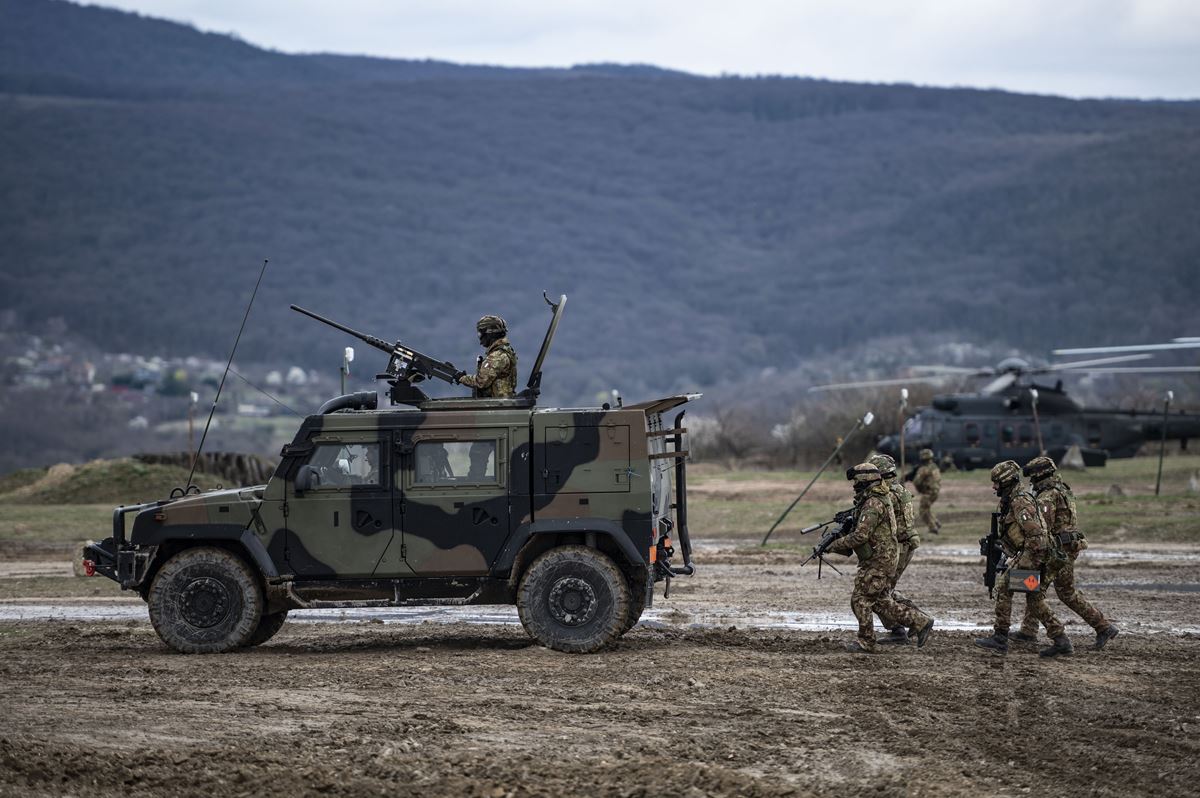NATO, the world’s largest and most successful defence alliance, is an organisation that guarantees the security of the Hungarian people “beside and on top of the Hungarian armed forces”, Defence Minister Kristóf Szalay-Bobrovniczky said at a ceremony held to mark the 25th anniversary of Hungary’s NATO accession at an army base in northern Hungary, on Tuesday.
On this day 25 years ago, Hungary’s foreign minister deposited the instrument of accession to the North Atlantic Treaty with US Secretary of State Madeleine Albright in a ceremony held in the city of Independence in Missouri in the United States.
The minister said in Tata that NATO is “a credible force” that will deter any “challenges” that may be posed against it, which is very important for Hungary.
He called Hungary a valued and respected member of NATO.
Szalay-Bobrovniczky noted an overall modernisation of the Hungarian armed forces over the past 25 years, with ” 21st-century NATO-compatible systems installed.”
He said that to meet NATO obligations, Hungary spent 2 percent of its GDP on defence last year, 20 percent of which was spent on the development of the armed forces.
He said Hungary is an active participant in international partnerships and missions. Hungary is participating in KFOR’s peacekeeping mission and helps to protect the airspace of Slovenia, the Baltic countries, and temporarily that of Slovakia.
Prior to the ceremony, a military show was held presenting top-notch Gidran armoured fighting vehicles, third-generation Leopard 2A7HU tanks and a SAAB Gripen fighter jet.
One of the newest challenges of the Hungarian army will be the Chad mission, we wrote about it here.
Military show – photos:
Strong NATO vital for Hungary
A strong NATO is of vital importance to Hungary and the Hungarian nation, Zsolt Németh, the head of parliament’s foreign affairs committee, said on Tuesday at an event marking the 75th anniversary of the organisation’s founding and the 25th anniversary of Hungary’s accession to the alliance.
Finland’s and Sweden’s recent accession to NATO has been in Hungary’s interest, because the two countries offer a significant contribution to the alliance’s strength,” Németh said in a keynote speech in Parliament.
Németh said that nowadays it was Russia’s attack on Ukraine that was brought up as a justification for the need for a strong NATO, adding that this was not the only reason even though the war was indeed the most important security challenge for the alliance.
He said Hungary’s parliament and government “firmly and unequivocally condemn the Russian military aggression that has been going on against Ukraine since 2014”, and stands by Ukraine’s sovereignty and the integrity of its internationally-recognised borders in unison with its allies.
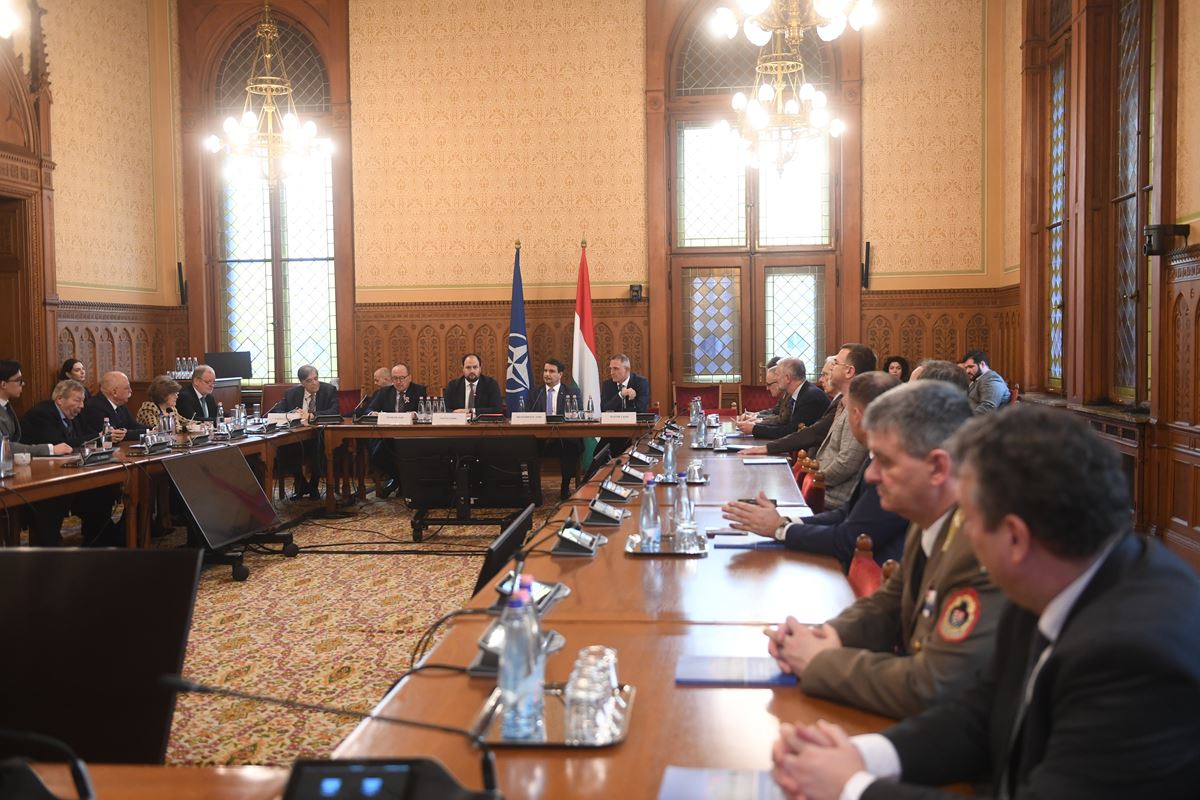
Németh said that while there was transatlantic unity when it came to the strategic assessment of the situation, “we have disagreements with our allies and Ukraine at the tactical level”. He said these disagreements could be traced back to the fundamental interest of Hungary and the Western world that Ukraine should achieve its strategic goals with as few casualties as possible, while Russia should not achieve its own.
Hungary’s interest, he said, lay in having a stable and strong, rather than a weakened Ukraine as its eastern neighbour, adding it was “thanks to NATO” this could be achieved with an urgent ceasefire and peace talks. Németh said NATO was the world’s strongest defence alliance, which was why no one had a chance of attacking it and defeating it.
He said the path taken by Hungary between 1990 and 2004 was proof that the strength of NATO’s defence “could make the world better if its leaders used it wisely”. “This world [we live in] is significantly better than the world of the Cold War,” he said.
Noting the defence measures Hungary needs to take against illegal migration and the country’s ongoing comprehensive military upgrade programme, Németh said Hungary will “continue on this path”, as it was committed to peace, security, the common good, human rights and the sovereign equality of nations.
